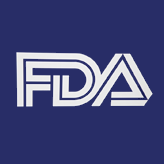FDA Grants Approval to Axitinib for the Treatment of Advanced Renal Cell Carcinoma
The US Food and Drug Administration (FDA) has approved the angiogenesis blocker axitinib (Inlyta), a twice daily oral drug, as a second-line treatment for patients with advanced renal cell carcinoma.

The US Food and Drug Administration (FDA) has approved the angiogenesis blocker axitinib (Inlyta), a twice daily oral drug, as a second-line treatment for patients with advanced renal cell carcinoma.
The approval came following a randomized, open-label, multicenter phase III trial which enrolled 723 patients whose disease had progressed on or after treatment with one prior systemic therapy. Patients were randomly assigned in a 1:1 ratio to receive axitinib or sorafenib (Nexavar). The results were published last December in the Lancet.
The median progression-free survival (PFS) was 6.7 months with axitinib compared to 4.7 months with sorafenib (P < .0001).
"This is the seventh drug that has been approved for the treatment of metastatic or advanced kidney cell cancer since 2005," said Richard Pazdur, MD, director of the Office of Hematology and Oncology Products in the FDA's Center for Drug Evaluation and Research, in the press release announcing the approval.
Renal cell carcinoma, which accounts for 80% of all kidney cancers, is the most lethal of all genitourinary cancers. Between 20% and 30% of patients have advanced disease at the time of diagnosis.
The other agents approved for the treatment of renal cell carcinoma since 2005 are sorafenib, sunitinib, temsirolimus, everolimus, bevacizumab, and pazopanib.
"Collectively, this unprecedented level of drug development within this time period has significantly altered the treatment paradigm of metastatic kidney cancer, and offers patients multiple treatment options," added Pazdur.
In December, an FDA advisory committee delivered a unanimous vote recommending approval of axitinib, citing the drug as a potentially useful alternative for patients unable to tolerate other VEGF inhibitors such as bevacizumab (Avastin) or sunitinib (Sutent). The drugs carry different toxicity profiles.
During the phase III trial, treatment had to be discontinued due to toxicities in 14 patients from the axitinib arm compared to 29 patients from the sorafenib arm (4% vs 8%).
The most common adverse events for patients taking axitinib (observed in ≥ 20% of patients in the trial) were diarrhea, hypertension, fatigue, decreased appetite, nausea, dysphonia, hand-foot syndrome, weight loss, vomiting, asthenia, and constipation.
According to the FDA annoncement, the drug carries the following warnings: patients with hypertension should have it well-controlled before taking axitinib; some patients who took axitinib experienced bleeding problems, some cases were fatal; patients with untreated brain tumors or gastrointestinal bleeding should not take axitinib.